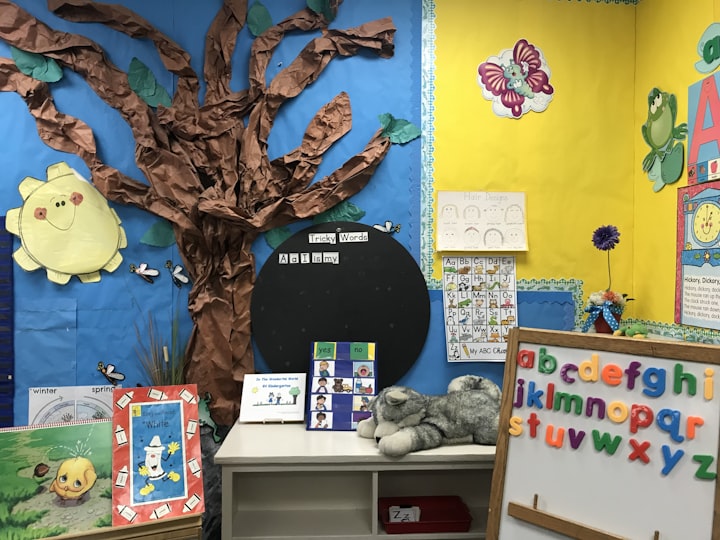Why It Is Good To Learn Many Language
Why It Is Good To Learn Many Language

A 2011 study found that students in rigorous high school programs that contained at least three years of foreign language instruction were more likely to improve their grades in college and to drop out less often. Another study showed that students of high school with two or more years of foreign language instruction performed better on the English performance tests than students without foreign language skills. A study of 13,200 third and fifth graders in public schools in Louisiana found that children who participated in the English course of the Louisiana Basic Skills Test, regardless of race, gender or academic level performed better than those who didn’t.
According to the September 2014 Eton Institutes Language Development and Workforce Survey, 89% of our clients say that multilingual employees add value to their workforce, and 88% say that recruiting team members with language skills is important for their organization.
In addition to better chances of finding a good job and advancing your career, learning a second language can give you insights into other cultures. They will be better prepared and more confident to travel the world and explore the lifestyles of other peoples. There is evidence that people who are bilingual learn languages faster and more efficiently than monolingual people.
Learning a new language opens the door to millions of potential new friends and relationships. If you have a heritage in another language, learning another language can help you reconnect with your family and its history. Learning a second language opens the possibility of being part of a community of different cultures and learning more about the world around us.
This will be much easier if you at least understand other languages. One of the most important reasons for learning multiple languages is the development of global relations. Because language and culture are so closely intertwined, learning a foreign language can promote cultural understanding and provide deeper insights into other people's worldviews.
The best part of learning a foreign language is making new friends. When you connect with new people and their languages, you will find that their friendships are meant to outlast your other friendships.
This is the perfect time to remember that learning foreign languages is a goal you have forgotten, and to start learning languages in 2021 so that you are ready for the future and incredible travel. The health benefits and improvements in memory and brain performance will make 2021 the year you learn a new language. Apart from the grim memories of French lessons in high school, language learning has come a long way.
We believe that every student should learn and cultivate at least one world language in addition to English. In the 21st century, it is not only advantageous to speak a second language, but also necessary to succeed in life.
Research shows that knowledge of more than one language is associated with better thinking, problem solving and creativity. Students develop these skills by learning languages. This is especially true for English-speaking students learning a foreign language and English learners in bilingual immersion programs.
People are more likely to rethink when asked to make decisions in a foreign language, a study has found. Another study found that children from families who speak a second language at home performed better on cognitive tests than children who speak only one language. The theory is that the distance between the foreign language and the native language causes the brain to rethink situations.
Learning a new language makes you a better listener than you are used to interpreting meanings and judging nuances. Terms such as vocabulary, grammar, conjugation, comprehension, phrases and sentence structure become commonplace phrases that your own language can easily absorb.
Multilingual people have the ability to think in different languages, and the ability to communicate in more than one language helps with multitasking. Learning a new language makes the brain become familiar with new grammar, new vocabulary and new rules. It allows you to practice your memory, remember new words, make connections between them and use them in contexts.
Most institutions offer the opportunity to learn foreign languages from an early age. Students attending language schools in D.C. are surrounded by native English speakers as they attempt to learn a foreign language. Since 1915, the Middlebury Language School has been one of the nation's most important language learning programs.
The later a speaker learns his or her language, the more likely he or she is to make grammatical mistakes (an Italian speaker who uses too many articles in English, or an English speaker who uses few articles in Italian, will have difficulty learning new grammatical rules). For this reason, it is common for students to develop a language during their studies.
This shows that young people have an enormous advantage in learning several languages. Learning several languages at a young age also seems to influence how well a person learns additional languages.
Learning languages has been shown to delay or reduce the risk of memory loss, dementia and Alzheimer's disease. Studies have also shown that once you have learned a language, your next language is easier to learn. If you work hard to learn a language, train your brain muscles.
Researchers in Spain and Germany found that the process of learning a language and acquiring a broader vocabulary stimulates the same parts of the brain as sexual or eating chocolate. Working on learning a new language strengthens your ability to concentrate, remember and understand material. Seniors should be encouraged to learn languages as studies show that multilingualism is correlated with a decline in dementia.
More and more companies need many different types of workers who can communicate in different languages and understand other cultures. Technicians who speak Russian and German, company directors who speak Japanese and Spanish, and salespeople who speak French and Chinese can work with many more people in many more places than those who speak only one language. Whichever profession you choose, if you can learn a second language, you have a real advantage.






Comments
There are no comments for this story
Be the first to respond and start the conversation.